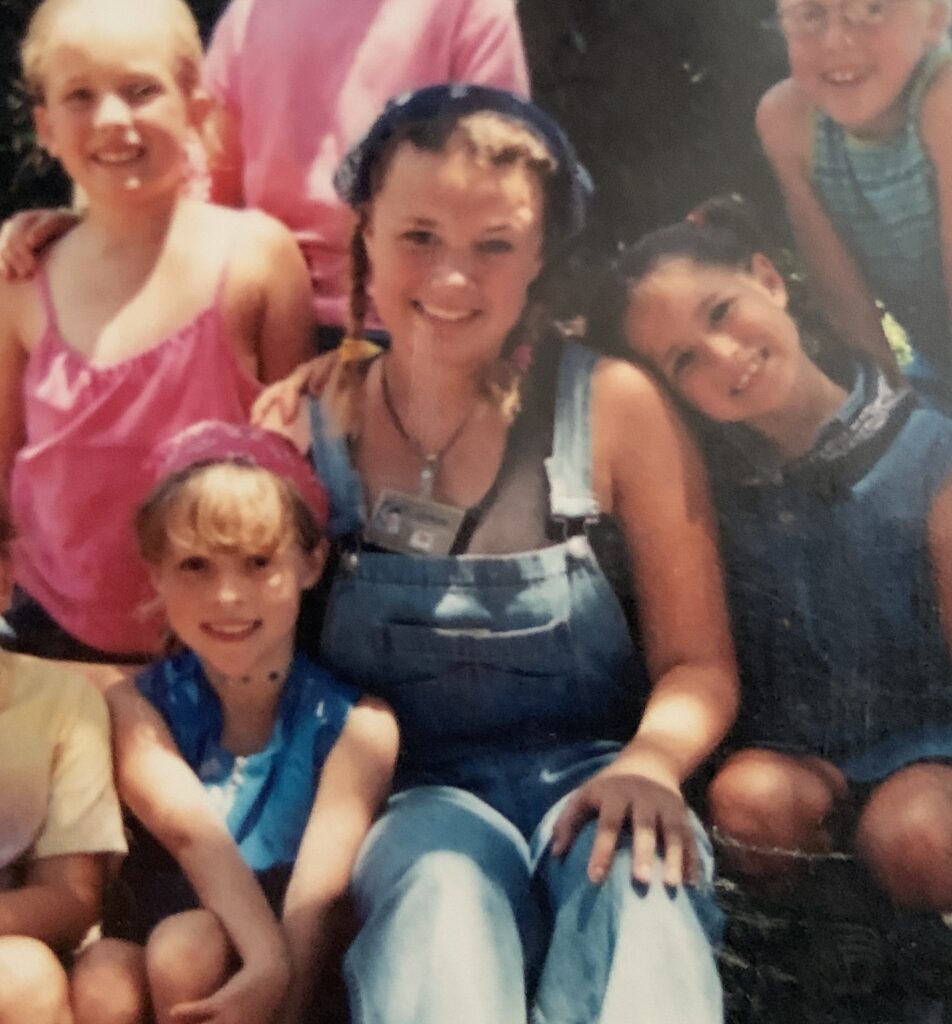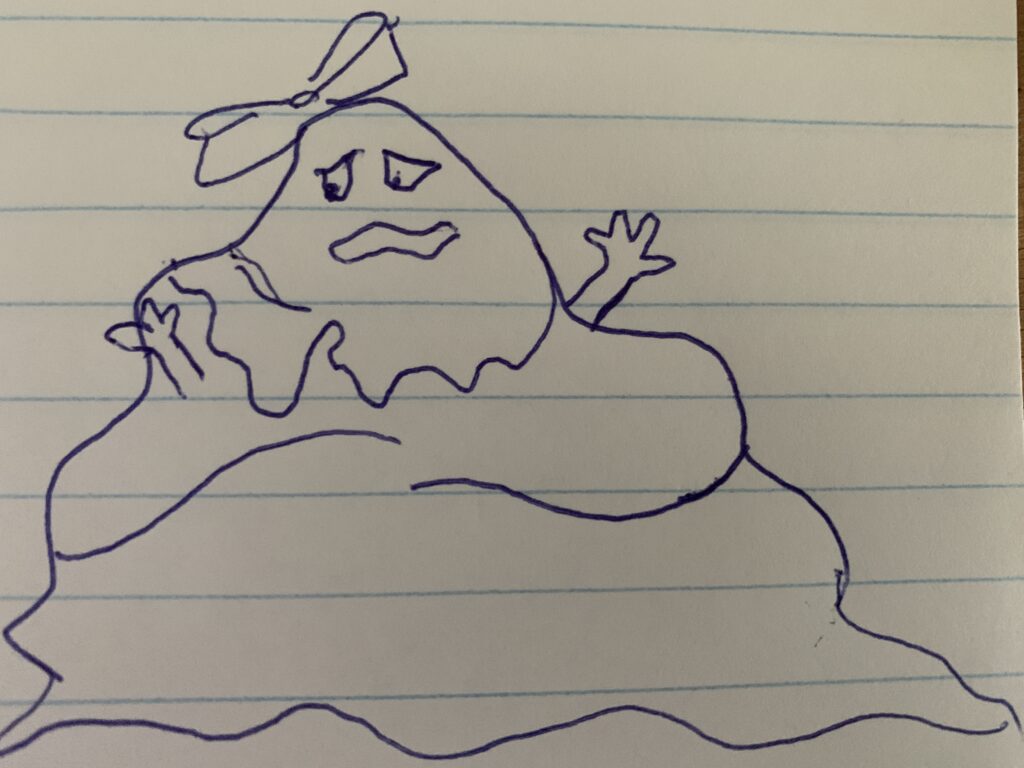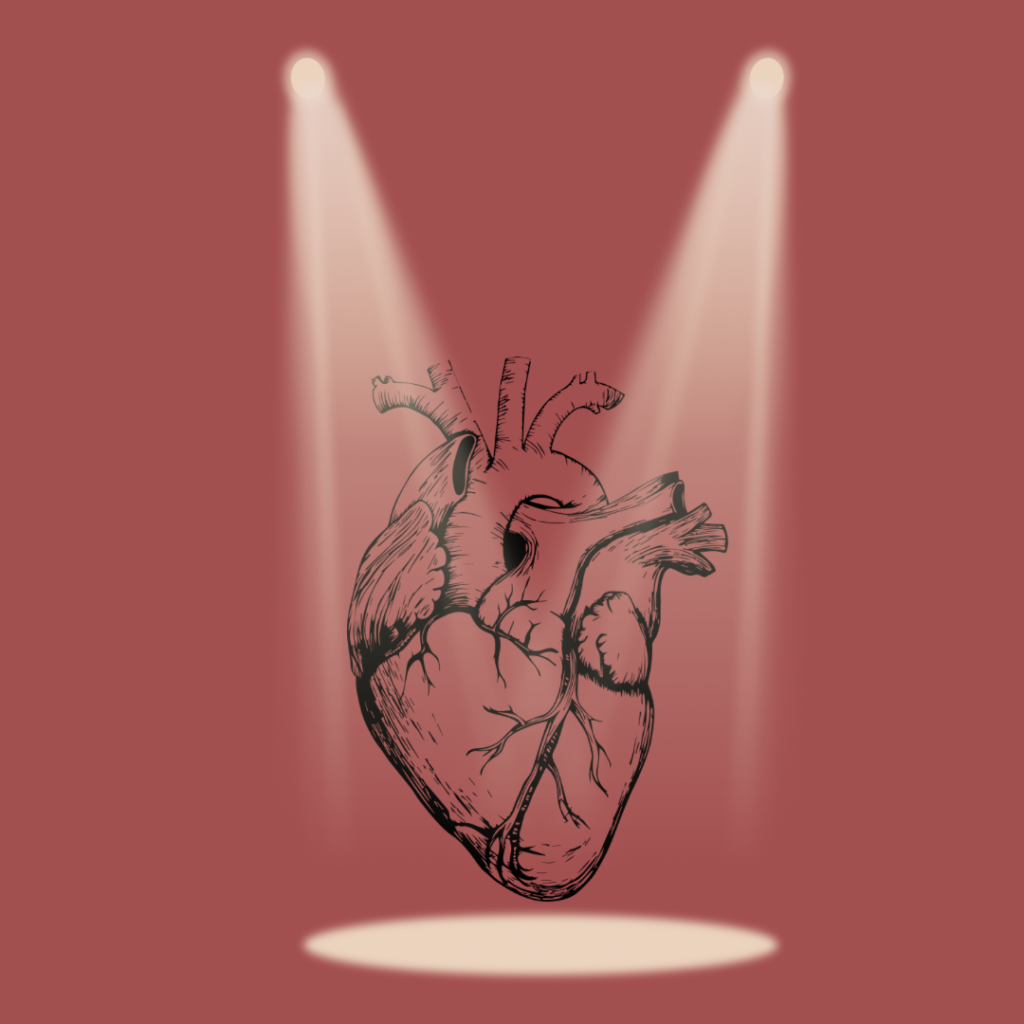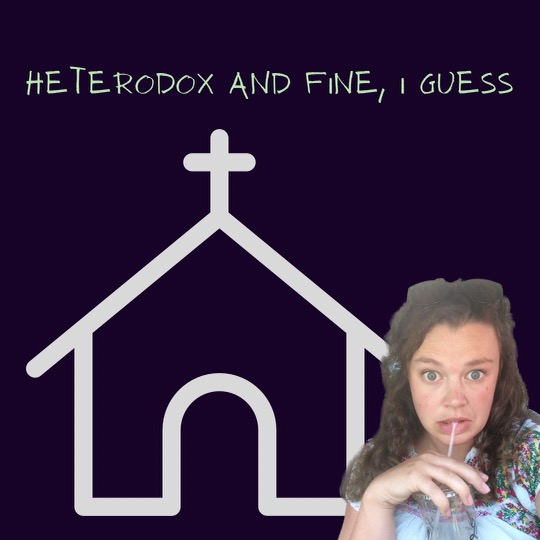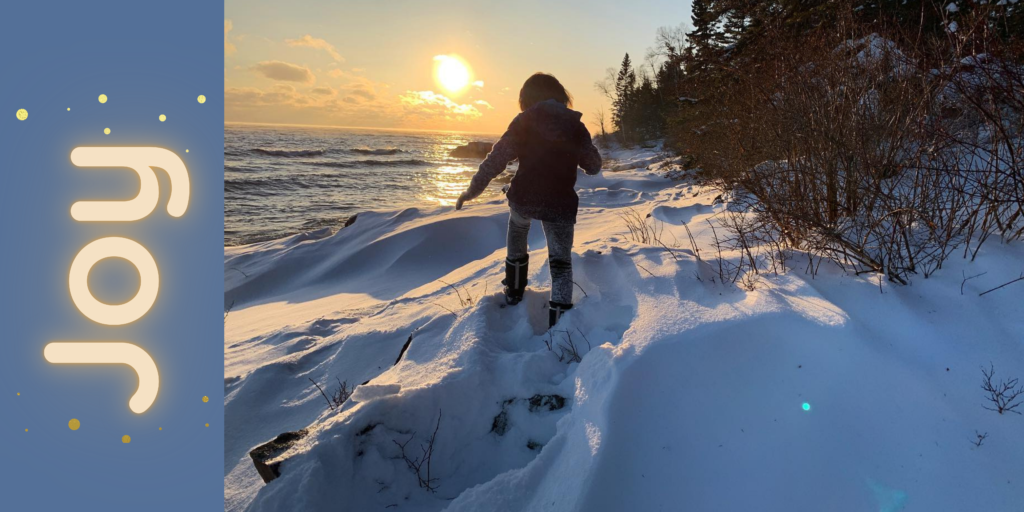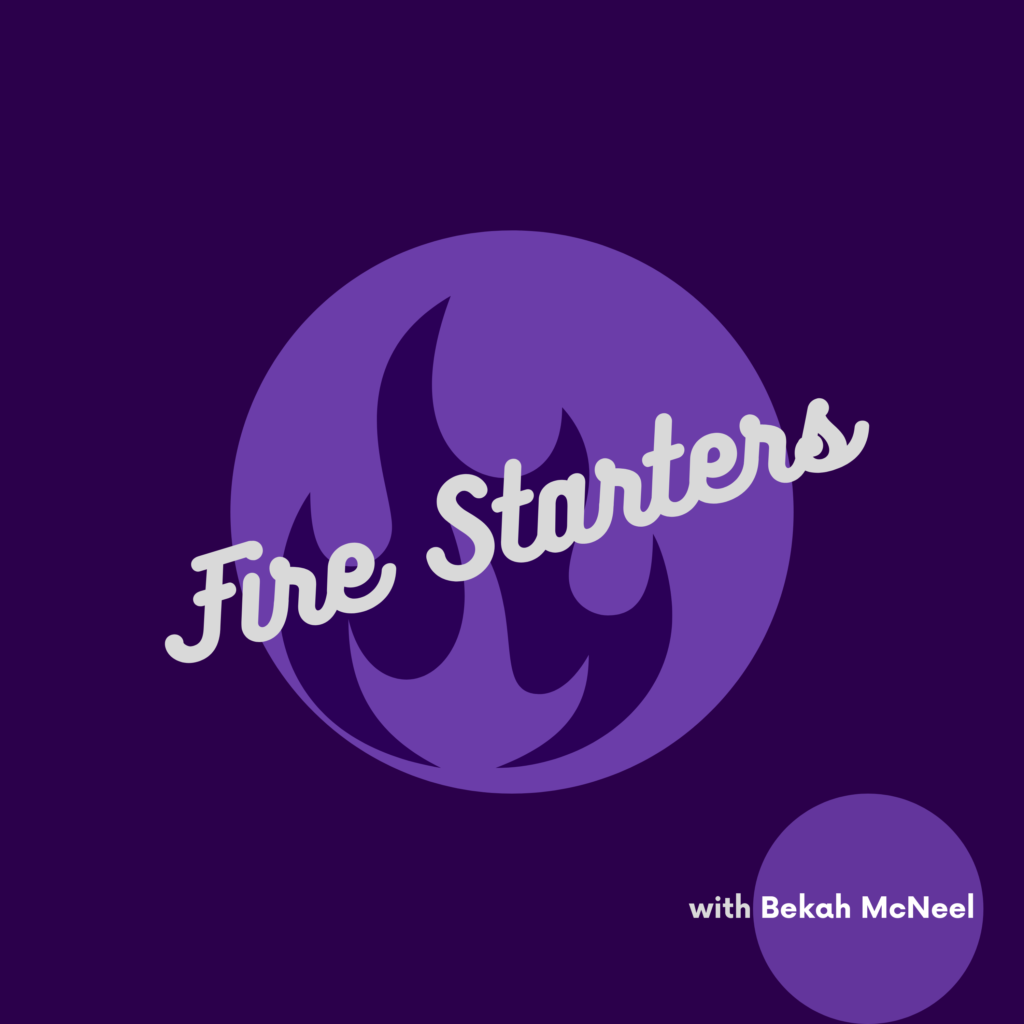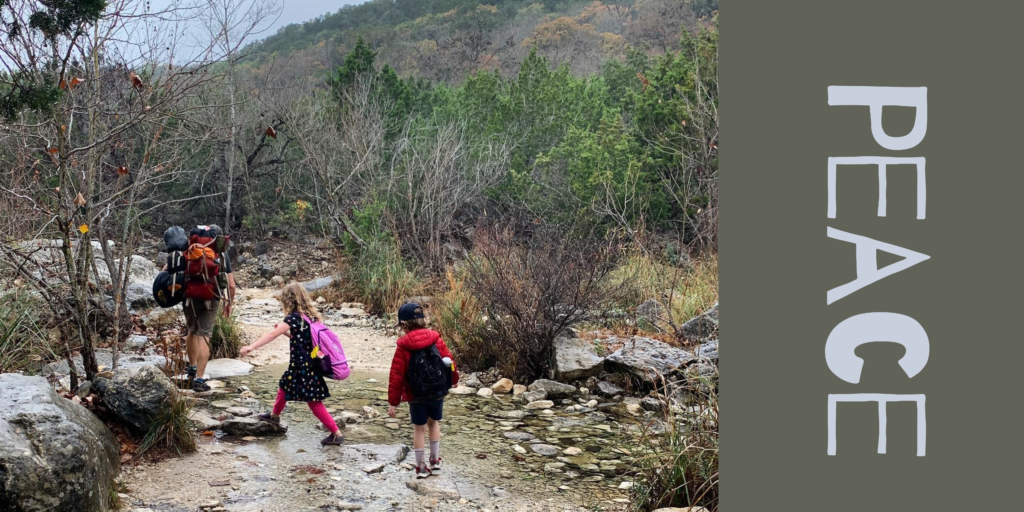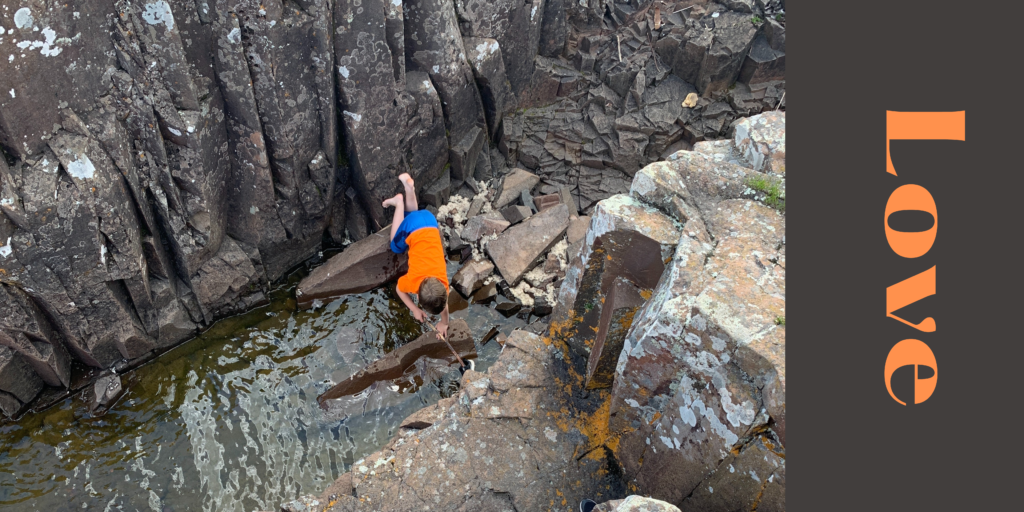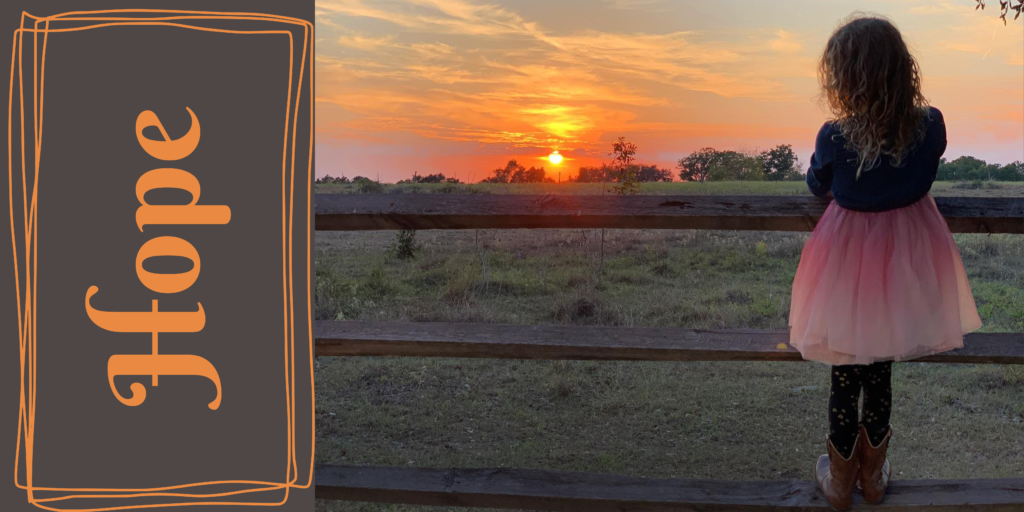Dr. Banner and the Dragon
A psychedelic installment in the Heterodox and Fine, I Guess series

If this is the first post you’re seeing in this series, welcome. You might want to go to the homepage and read one or two others first, because this is the part where I start to sound like I’ve left town.
At the end of the last post, I was in a full embrace of the God who precedes, transcends, and gives grace to religion. I was considering the idea that all our explorations, whether scientific or spiritual, are a dialogue with God that is part revelation and part co-creation. This is the most excited and enamored I have been in a long time—at least when it comes to spiritual things.
As I mentioned, the fruit of exploration in my life was everywhere. It has been a rich season of growth in our family, I have been able to hold space for people who are struggling with church hurt, and my relationship to work has been almost placid. But I’m me, so there had to be one little hitch. And his name is Bruce Banner.
A brief interlude to explain IFS via Mike Birbiglia’s podcast
I’ve mentioned internal family systems on this blog, the psychological framework that addresses our “exiles” “protectors” and “firefighters” (if you don’t know about it, I recommend stopping here and reading this or listening to episode #197 here). Exiles are the parts of ourselves that, at some point, we perceived as unacceptable, or a threat to our place in the tribe. We blamed them for bad stuff that happened to us. Protectors are the parts of us that keep the exiles from interacting with the world—we might think of them as coping mechanisms, compensators, or managers. For example, on his Working it Out podcast, Mike Birbiglia talks to a lot of comedians about what made them funny. He’s essentially asking them whether their humor is a protector. As a non-comedian who makes jokes to ease tension or to distract from my own intensity, I’ve always appreciated hearing comedians explore this.
Some protectors are obvious—usually the less pleasant ones that come off as critical, withholding, assholey, etc—others are so blended with our personality that we don’t think of them as protectors of anything. They are just…us. That’s why I like Birbiglia’s questions, because they get past “he’s just a funny guy” and ask, but why is he funny? Not to pathologize being funny or high achieving or organized, but to acknowledge the roles we ask those parts to play for us. We also have firefighters, the ones who rush in when the protector is not getting it done, when the exile is about to be exposed. Firefighters can be alcohol, explosive anger, compulsive behaviors, a lot of the things we think of as problems. Again to Birbiglia’s podcast, there’s a connection between the joke-telling protectors and the drug-using firefighters. When the jokes don’t get the job done, the drugs do. Except that they also addict your body, ruin your relationships, and eventually kill you.
It’s important to remember that, as Richard Schwartz, the originator of IFS, says, there are no “bad” parts. Even the firefighter is not a drug addict. The firefighter is just trying to prevent something worse: the big “never again” that created the exile. Everyone in there is working really hard to keep the threats at bay, and get ahold of what we need to sustain life. When we do new things, seek to heal, or forge new territory our protectors can get nervous. They are already so tired, and they are usually the ones who shaped our lives thus far, negotiating relationships and setting goals.
And here I was, rocking the boat.
Dr. Banner, the Hulk, and what this has to do with the mystical journey
At a certain point in my mysticism journey I noticed a lot of action from one of my favorite protectors. I have this protector who looks a lot like Marvel’s Dr. Bruce Banner sitting in the lab at Avengers headquarters, scrolling through code and probably quantum realm stuff. Maybe specs for new suits. Dr. Banner is rational, soft-spoken, and vigilantly scanning for threats at all times. I rarely interfere with him, because he generally makes me more likable and trusted. People love someone who can be reasoned with, who is flexible and accommodating, and who avoids conflict. I would have, to this point, described a lot of Dr. Banner’s behaviors as aspects of my personality.
Of course, obviously, when Dr. Banner can’t get the job done, there’s a familiar firefighter ready to rush in: the Hulk. The Hulk is my black-out anger that sweeps in to end a situation. As tension builds for Dr. Banner—conflict, confrontation, disrespect—I can feel the Hulk stirring at the base of my neck, disturbingly ready to come on to the scene at inopportune moments. The Hulk isn’t the only firefighter who rushes in when Dr. Banner is losing control—there’s also the Groveler and the Ghost. (If you are recognizing fight, flight, and fawn, you’re onto something.)
But as I moved from Banner-like exploration and analysis of mysticism to a more invested embrace, Dr. Banner started making himself known. As I leaned into some of this stuff as “true,” that part of me started worrying more about what others would think about it. I would play imaginary arguments in my head. I would imagine ways I was going to blow up my life…or something. Whenever I had the impulse to share this journey, to talk to others about it, to build on it, Dr. Banner would produce a “but, what if…” scenario to keep me quiet. Whenever I was driving or working or somehow engaging my achievement-focused brain, Dr. Banner’s favorite place for me to be, he would whisper, “that mystical stuff is all fake and stupid and you need to stop.” Or occasionally “you’re going to get your whole family demon-possessed if you don’t get back to safety.”
One of the mysteries of Dr. Banner has been the exile he’s protecting. He is helpful to several other systems, but I’d never really gotten a handle on what exactly he was trying to keep from the world. What was his “never again” that he was trying to prevent?
Healing work in IFS takes place in the presence of what is called Self—our connection to a higher power that has all of the resources of the universe at its disposal and can alleviate the burdens various parts have taken on. The problem for me was that Dr. Banner didn’t trust my Self. I mentioned in the post The Robot and the Self that authoritarian faith made it very difficult to identify big-S-Self because it was so explicitly hostile to little-s-self. Dr. Banner still had some code on his screen from my fundamentalist days. Self, self-confidence, trusting self, knowing self, believing in self, all were, as the kids say, sus.
Weirdly, what this felt like, as I discussed in the Robot and the Self, was a mounting pressure to self-abnegate. To reach ego death, or what I thought people meant when they said ego death. If I wanted to keep the Hulk at bay, to quiet Banner’s fretting, I needed Self to dissolve into the universe, and to simply forget that I was a separate or individual entity. And I needed it to happen fast.
Over the course of the summer I have been undergoing ketamine therapy, the only psychedelic therapy that is legal in Texas. I chose this route for multiple reasons, mostly to try to get to the deep stuff therapy has helped me manage but not heal. I assumed this would happen through ego death. But instead of simply dissolving Self into the universe and transcending the need for protectors and firefighters altogether, I’ve had a radical encounter with Self. And Dr. Banner has been on a ride.
The Dragon
I went to ketamine hoping that I would look inside, discover that I was just particles of universal soul, and no longer be plagued by worries about legitimacy, affection, comfort or any of the other desires. I still didn’t know exactly what Dr. Banner’s goal was, but I felt that if I no longer had emotional or social needs, then he could just relax. If this was the guy was exhausted from running all the scripts of how to gain respect, then maybe I just needed to not care about respect.
Ketamine is not like plant-based psychedelics, which often lead to a sense of connection with the universal spirit. Ketamine is a man-made anesthetic. In psychedelic dosing, it puts you under, but leaves you turned-on enough to explore an internal world and awareness unencumbered by the sensory processing we usually do to determine “real” vs. “imagined.” It’s lets you see your soul, in my opinion.
You wear a sleep mask and noise canceling headphones with curated music to facilitate internal exploration, while a guide uses whatever energetic tools are needed (sound bowls, reiki, aroma therapy, etc) to help you realize your intention for the trip. There’s some surrender required. You don’t always get the trip you want, you get the trip you need, as they say.
That proved true for me. In my first two trips, I wanted to learn to differentiate the voice of God from the voice of my programming, my ego, all the things that distract. It seemed like a nice step toward total dissolution. What I got instead was constant affirmation of the value of my individuality, a Divine nod, if you will, to the very Self and ego I was trying to transcend. I got the respect and affection and legitimacy I was trying not to crave. Instead of transcending the need for those things—which, it turns out are part of the human experience—I felt what it meant to have access to them internally, and to let them drive my connection to others, rather that be derived from my connection with others.
I saw the people who mean the most to me clothed in jewels and magic woven from my love for them. I saw shipwrecks rising from the bottom of the sea, and fortresses crumbling. I saw a representation of God holding the universe in order and saying to me “you are my child, but this is not your responsibility.”
It was magnificent, but a little voice would pipe up: isn’t it suspicious that it’s all be so lovely? Can you really trust it if it doesn’t beat you up a little? Isn’t it just you, telling yourself what you secretly want to hear, that you’re super awesome special? (This wasn’t Dr. Banner, btw, this was a different part for a different post.)
The staff therapist—with whom I check in after every session—suggested that strengthening of the ego might be essential for any goals of spiritual transcendence I have. I need to disentangle my desire to not deal with myself anymore from my desire to live in loving connection with others and the world. If I wanted to be fully beneficial to others, I had to stop thinking of myself as all liability, all weakness, all sin.
Dr. Banner was not thrilled, and I wasn’t sure why. Why was he so determined to hold onto these scripts about being submissive, rational, and detached? Especially when those scripts make it so difficult to handle negative emotions when they come up. Anger, in the irony of ironies, makes Banner panic.
In the fourth of six sessions, my intention was to be able to find peace in anger—a direct shot at Dr. Banner’s hyper control of my emotions, and the Hulk who is the personification of my fraught relationship with my own angry feelings. The trip itself was like a puzzle. I saw ancestors and childhood memories. Then I saw a giant robot, my robot, floating away. Immediately after I appeared as an enormous black dragon fully capable of both anger and grace. I saw the dragon soaring through jungles and using the anger to transform sand into glass and wood into something fire resistant. Then she was serenely floating up a river, sheltering a baby dragon under her wings. She was cool, confident, and fully authoritative over herself.
Listen, I know. I KNOW. A dragon. I don’t know what to tell you. No one wants to be a fantasy fiction cliche, but that’s what was in there. So whatever eye roll just happened for you, I invite that protector to join all my protectors in a collective “oh for fuck sake.” I get it. Why couldn’t I have been an owl? Or a python? Or a llama? Something quirky and low key and, NOT EMBLAZONED ALL OVER NERD CULTURE. No such luck. It was a dragon.
After this trip, I met with the therapist and we discussed the whole system. He’s trained in IFS, so we spoke in terms of my protectors and exiles. We traced the activities of the Dr. Banner protector, and how that protector responded to the various images and memories from the trip. There was something about the dragon telling the protector it was okay to stand down a bit.
“What is the protector afraid will happen if he just stops doing his job?”
The answer came suddenly. “Shame. People will use shame to control me.”
And then I cried really hard.
Later, talking to Lewis, the protector’s job clarified even further. Dr. Banner’s job was to keep me from being bullied. He read the power dynamics in every situation, and figured out the best script to keep me from flaring up the bullies in any given room. That’s why he doesn’t like all this woo woo—because it invites orthodoxy and rationalist bullies to discredit me. It’s why he doesn’t want me to come on too strong, voice ambition, or present as angry—because those things are like the duck call for a bully to need to put you in your place. Dr. Banner had been driving my pursuit of ego death, because if I could just cease to care about me, then the bullies would have nothing to do. The firefighters would never need to rush in. And then I understood something else: Dr. Banner’s exile is a little child who, at some point with her strength or her spirit, triggered a bully, who then put the whole system in panic. Banner’s been hard at work ever sense, trying to keep that from happening again in a world surrounded by pastors, editors, authority figures, and assholes. And here I was, doing all the things he’d learned never to do.
But, I reassured him, I’m not that little child anymore, dependent on authority for safety, or access to heaven, or love, or affirmation.
I am the dragon.



